Why America Will Collapse Without A Green New Deal
American civilization is simply running out of energy
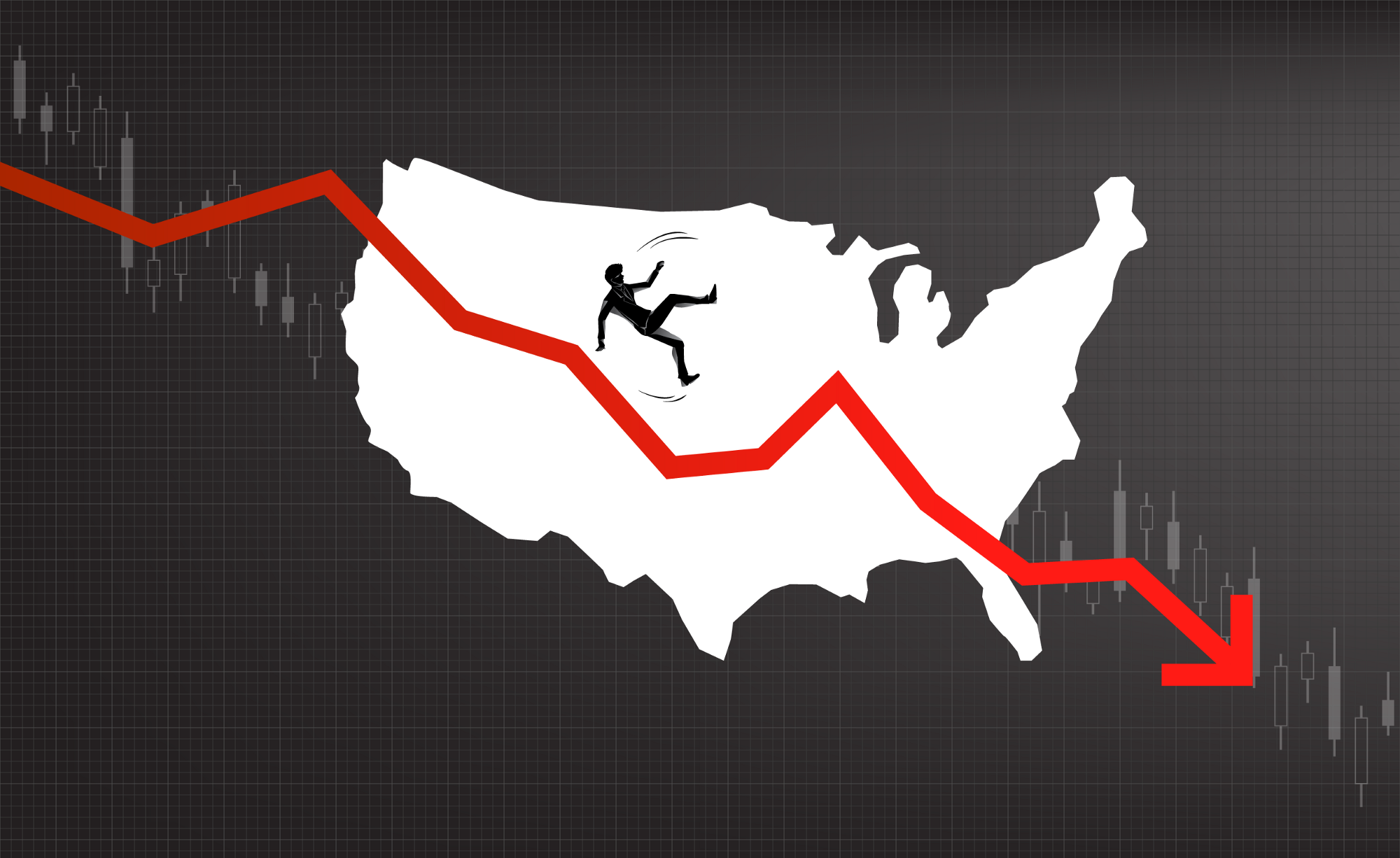
America is going to collapse. In fact, it’s been collapsing for years. Children are poorer than their parents. Life expectancy is in decline. This sort of declining society is highly prone to violent shocks — plagues, hunger, unrest. Get enough shocks and the whole thing comes tumbling down. The way things are going, America is bound for collapse.
Why?
Looking back, historians may say that 9/11 caused American collapse, or COVID-19, but these are just symptoms. Historians that have looked back at ancient civilizations always talk about energy. How a civilization lives and dies is based on the energy flows it controls. Kardashev, who looked forward, identified energy as the only measure of galactic civilization.
To understand why America is collapsing, you have to follow the plug into the wall. The story of power is about power.
It’s about energy. This is the story and theory of energy, and why America is bound for collapse unless it makes a Green New Deal fast.
The Story Of Energy
The idea that civilizations are deeply tied to energy flows is well-established. Joseph A. Tainter talks about it in the Collapse of Complex Societies. Vaclav Smil talks about it in Energy and Civilization. You should read those books because it’s much more complicated than this, but here is a grossly simplified parable.
Imagine civilization as a party. A kegger. That’s driven by a different type of energy. Drunken energy.
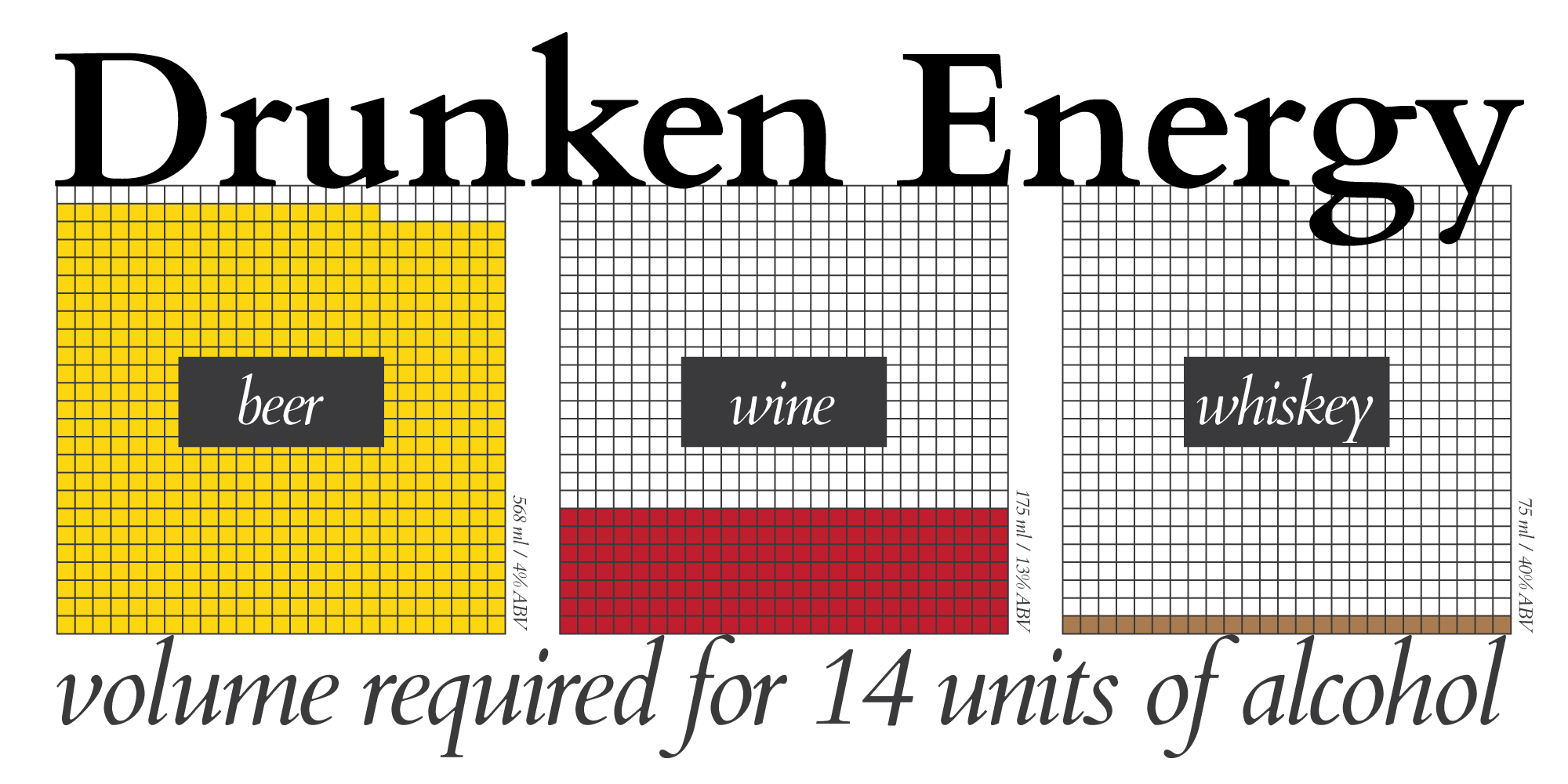
If you want to throw a kegger you need booze. The more dense the booze, the more people you can host. If at any time, you run out of booze (energy), people get unhappy, fights break out and the party ends.
This is the basic story of civilization. Let’s start the party and see.

Beer
Let’s say you start a party with beer. You get one keg delivered every hour. Cheap beer, interesting people, everyone is having good time. More and more people start showing up.
Suddenly you don’t have enough beer. The jocks take over and start doing keg stands with the little you have left. The bathrooms are overflowing, the neighbors are pissed, now the party sucks.
Finally someone steps on a shoe, a fight breaks out and everyone flees. Everybody blames it on Dinesh, but really the party just ran out of beer.
That’s a civilization that runs out of energy. A civilization that doesn’t have enough energy to support its population is prone to violent shocks and collapse.

Wine
Now imagine that before you run out of beer, someone shows up with a keg of wine. Wine is 3x as alcohol dense as beer, so the party keeps going. In fact, more people arrive.
Eventually, however, there’s too many people, too much greed, and now they’ve gotten used to expensive cheese. You try to stop the cheese, but then there’s the great Gruyere Riot and the whole party collapses, people getting stabbed in the eye with toothpicks and dying of gout.

Whiskey
Unless… someone shows up with a keg full of whiskey, just in time. Whiskey is 7x as dense as wine, so the party can keep going. You can support the greedy people and the party at large. Your civilization keeps going. And this goes on. Everclear, cocaine, fentanyl, as long as you keep increasing energy flows, the party can keep going. The minute you stop, any little thing can trigger a collapse.
This is the broad and absurdly simplified story of energy and civilization. Just look at the galaxy.
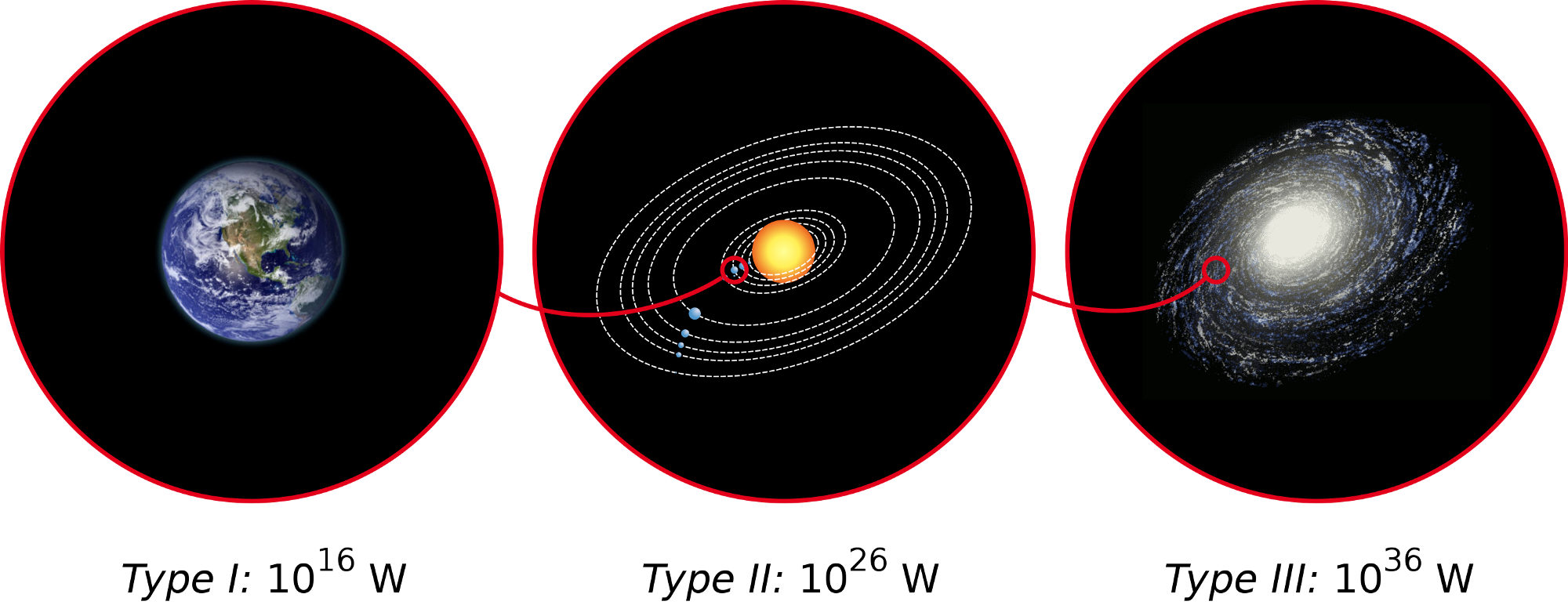
The Theory Of Energy
On the Kardashev scale, this is all there is. A civilization’s level of advancement is simply how much energy it can harness. All the energy on its planet, from its sun, from the galaxy at large. Humans are still a Type 0 civilization, we’re a galactic joke.
On a historical level, energy is a key (but certainly not only) way to analyze civilizations, from the ancient to the modern. It’s also an interesting way to look at collapse, as scholars like Tainter have done.
Let’s take a look at that theory, and I’ll include the caveats at the end.
To brutally paraphrase Vaclav Smil, the course of history is just the control of energy. Energy is power. Power is power.
Energy is the only universal currency; one of its many forms must be transformed to get anything done.
Humans depend on this transformation for their survival, and on many more energy flows for their civilized existence.
The evolution of human societies has resulted in larger populations, a growing complexity of social and productive arrangements, and a higher quality of life for a growing number of people. From a fundamental bio-physical perspective, both prehistoric human evolution and the course of history can be seen as the quest for controlling greater stores and flows of more concentrated and more versatile forms of energy. (Smil, Energy & Civilization, Chapter 1).
Smil goes through it all in exhaustive detail, but let’s look at just one example.
That ass
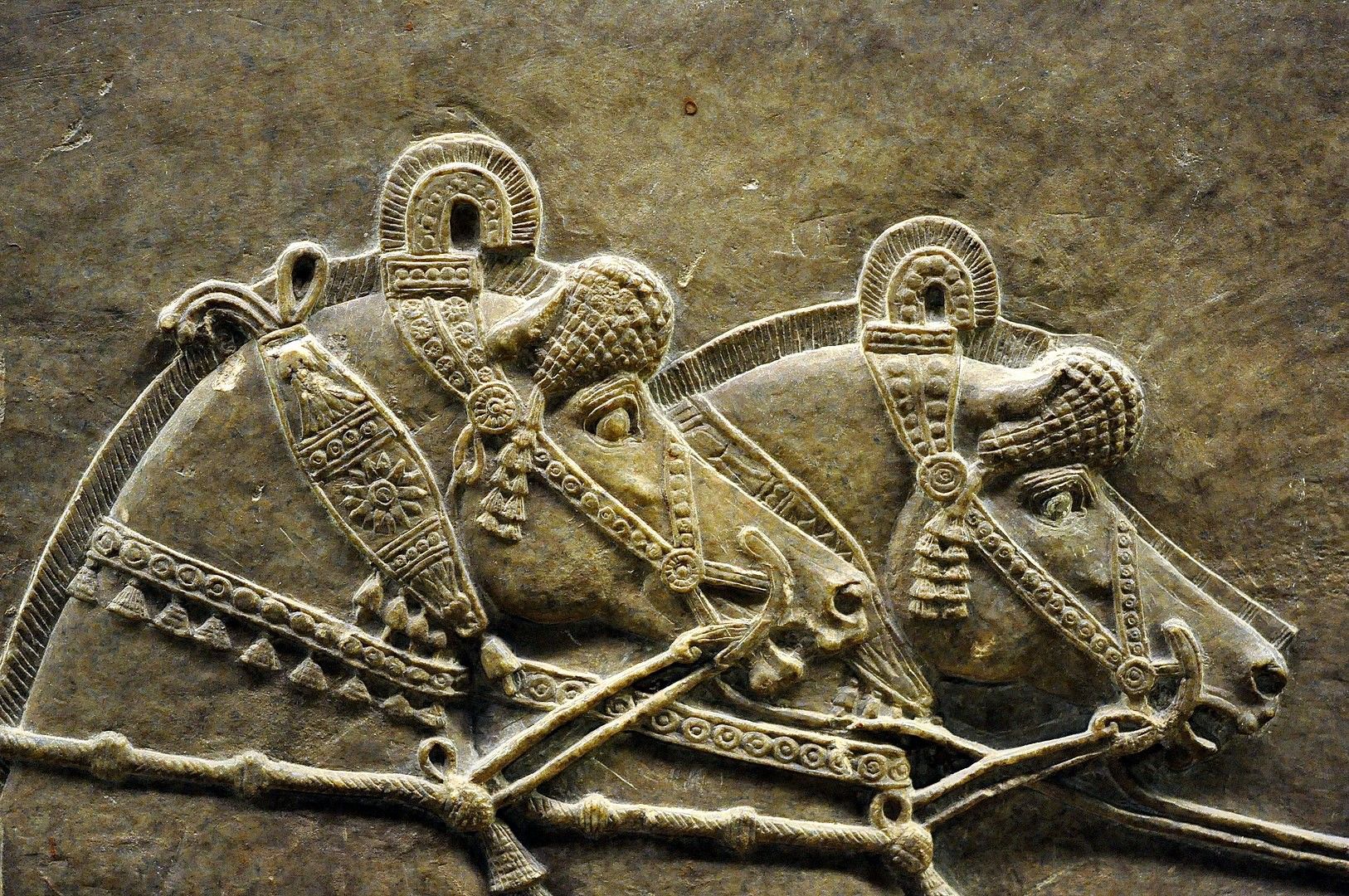
Pack animals are great because your ass doesn’t need to be doing all the work. Your ass can.
Pack animals revolutionized agriculture, transport, and industry, but at some point. They were a great source of power that lasted for over 5,000 years. At some point, however, they gave declining returns. Eventually, you end up working for the horse.
By the 1890s, an American horse ate 80x more than its owner. Nevermind that they also shit 80x more, this simply wasn’t sustainable. There is no way that civilization could have advanced to where it is on horsepower. You couldn’t have horse-powered airplanes.
This was the state of the party for thousands of years. Civilizations would rise and collapse over and over again. None of them discovered a brand new energy source. Luckily for the American empire, it emerged at a time where this was even possible.
By the mid-1800s they cracked a keg of fossil fuels and it was freely flowing by the 1900s. That’s what’s fueled their civilizational bender to this day. Now, however, the party is running out. It’s literally getting hot and the weather is getting angry. Right now, cracking a barrel of crude has negative value. If it powers $100 of economic activity now, it’ll cost $1,000 in 20 years. The net present value is less than nil. It’s destruction.
A civilization like this is simply bound for collapse. Indeed, it’s already happening.
The Power Of Collapse
Civilizations must collapse. It’s an almost mathematical fact. It’s necessary for the continued advancement of the species, as necessary as our own death. Here’s a rough equation:
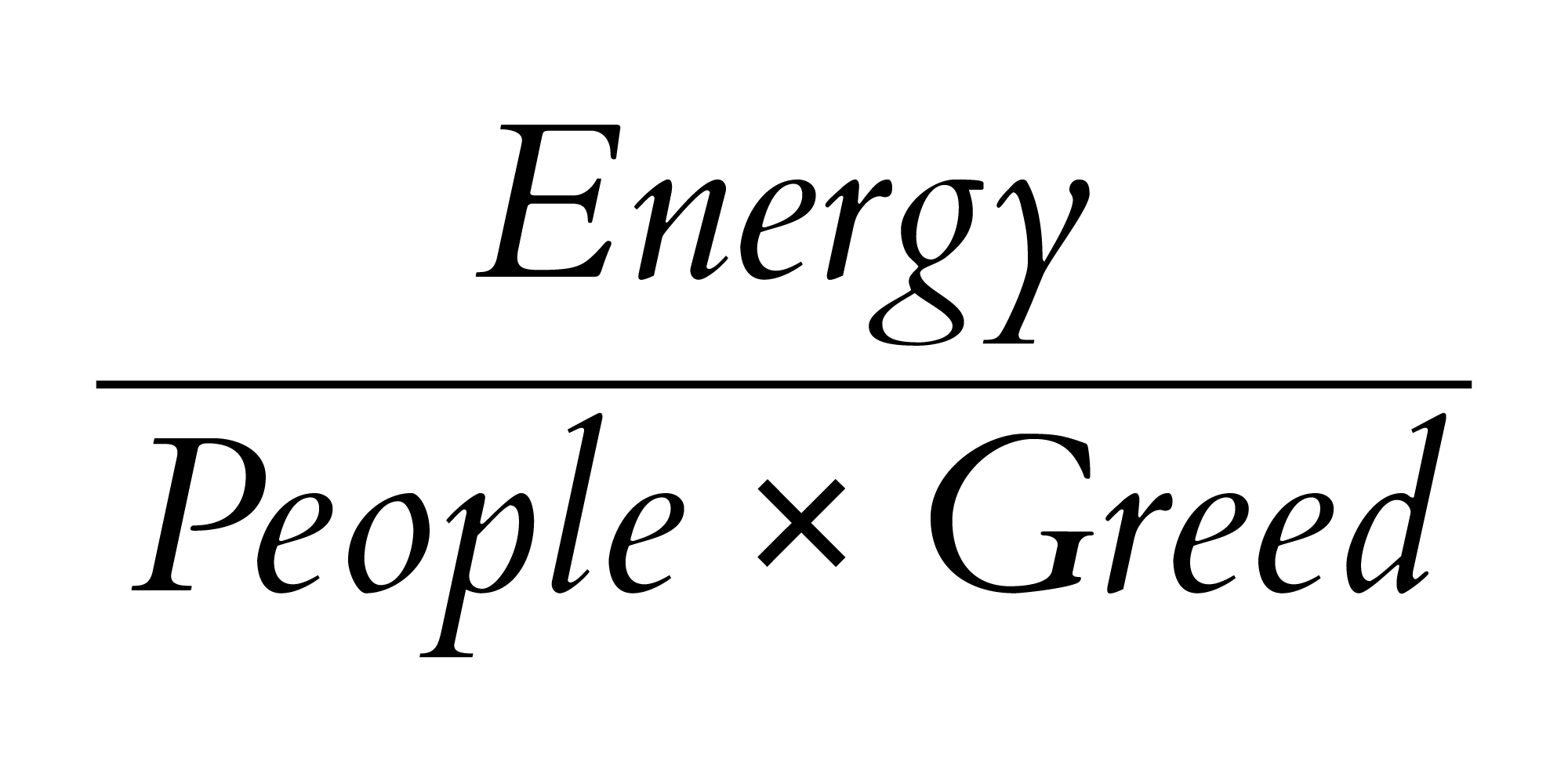
You can either increase the numerator (energy), or decrease the denominator (population or inequality). While this should be possible, the problem is human psychology.
It’s like a computer. If it gets weird the simplest thing is to turn it off and turn it on again. That’s how most civilizational declines are resolved. We either overthrow the elites and start over, or start a war and reduce the population over all. Sometimes nature does it for us, through disease or crop failures. Either way, the equation gets balanced.
We either add less energy or subtract human need and greed. Civilizations will rise and fall as inexorably as we live and die, and for the same reasons. Inevitably, we all just run out of steam. If you think about it, we eat very little food to build a whole-ass human, and then lots of food to just stagnate, until food finally gets us killed.
America has hit this curve already.
In 1900, building a mile of subway cost $110 million (inflation-adjusted). In 2015, it cost 23X as much ($2.5 billion per mile). New business creation has declined by 44% since the 1970s. Most consumer technology (fridges, planes) hasn’t changed since the 1960s. Average income has declined since 1979 for 90% of Americans, while increasing handsomely for the 1%.
More to the point, the source of their power is providing negative returns — with Climate Change causing trillions of dollars in economic damages within decades. Add to this the declining life expectancy, and generational decline mentioned above and you have a society on the brink.
In response to this, they’ll make some changes, but it will simply be too little too late, and they’ll sail into Climate Change like a wall. The whole thing will burn out, splintering into states as has already begun.
There’s only one way out. They have to tap a keg.
The Only Way Out
Note that I’ll spend the least time on the Green New Deal. In the long-term historical view, it doesn’t even matter. There was a lot of innovation required for the pack animals (different types of yokes, chariots, plows), but historically the only thing that mattered was that it was new, and it worked.
Fossil fuels have a massive negative Net Present Value and renewable energy is at least positive. At a galactic glance, that’s all you need to know. Just switch to the thing that’s not killing you. That’s your only chance. Because collapse has already begun.
America (and likely us) is simply going to collapse without a new energy source. They’re going to collapse without a Green New Deal, and they need it right now.
Re:
Vaclav Smil — Energy And Civilization A History
Joseph A. Tainter — The Collapse of Complex Societies
Smil and Tainter are somewhat contradictory sources. They both talk about energy, but Smil is obsessively detailed. Tainter breaks civilization collapse down to this:
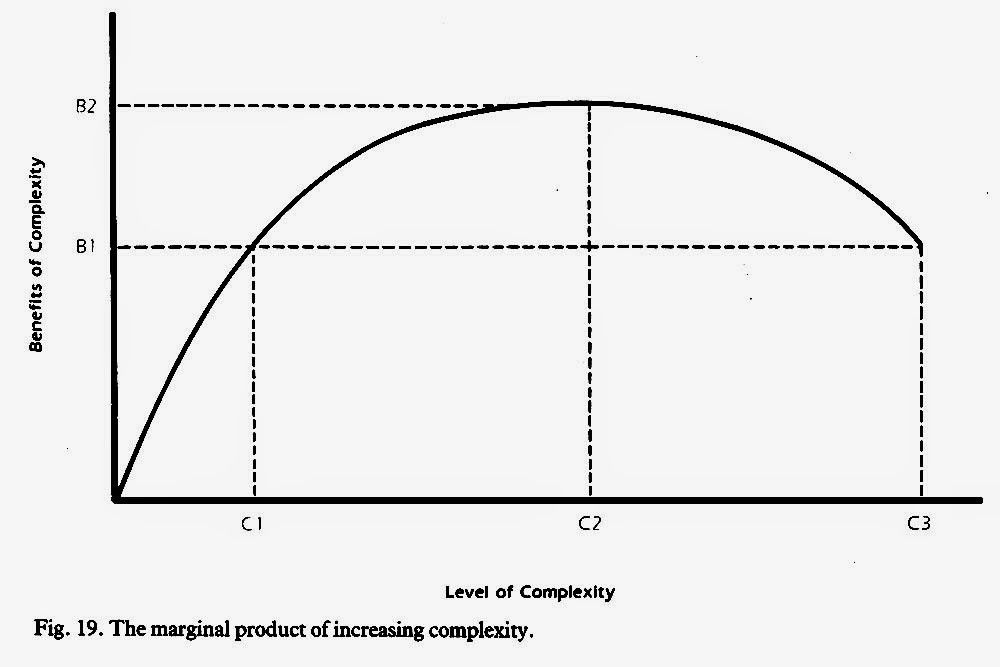
Which he applies across a range of civilizations and even concepts. His thesis is:
- human societies are problem-solving organizations;
- sociopolitical systems require energy for their maintenance
- increased complexity carries with it increased costs per capita; and
- investment in sociopolitical complexity as a problem-solving response often reaches a point of declining marginal returns
Smil sort of scoffs at this simplification, pointing out that population growth is not always pegged to increased energy use and may, well, I’ll let him say it:
Energy considerations are also of limited help in trying to explain some of the greatest recurrent puzzles of history, the collapse of complex societies. Inquiries into this fascinating challenges (Tainter; Ponting; Diamond; Faulseit) proffer simple answers only when their authors are willing to ignore inconvenient complexities. (Smil, page 435)
He points out that sociopolitical explanations (which are dominant) have some utility, and I agree. America has also not invested in efficient public services, and has suffered from unchecked greed. They have also been subject to terrible long-term leadership from the Republican Party for decades.
Complex civilizations are necessarily complex, and this small Medium article elides a lot. My only hope is that it gets you thinking within a theoretical framework, and a longer time frame than right now. I highly recommend you read both Smil and Tainter, there is a lot of detail that has helped me understand.